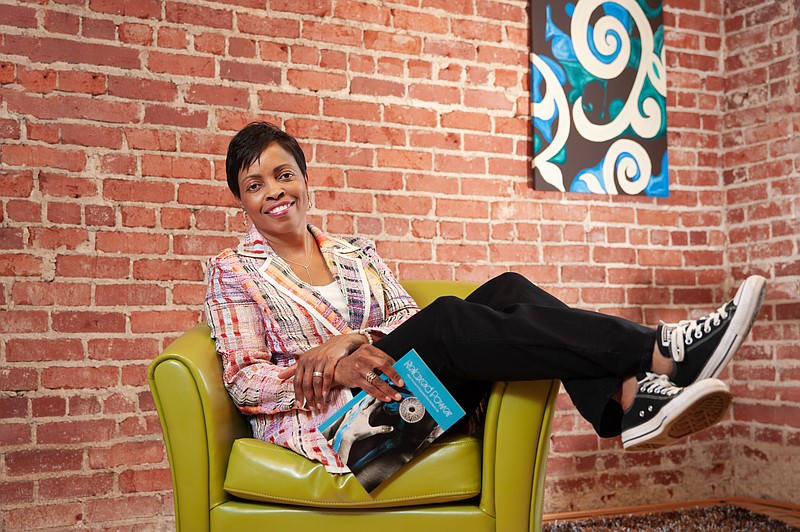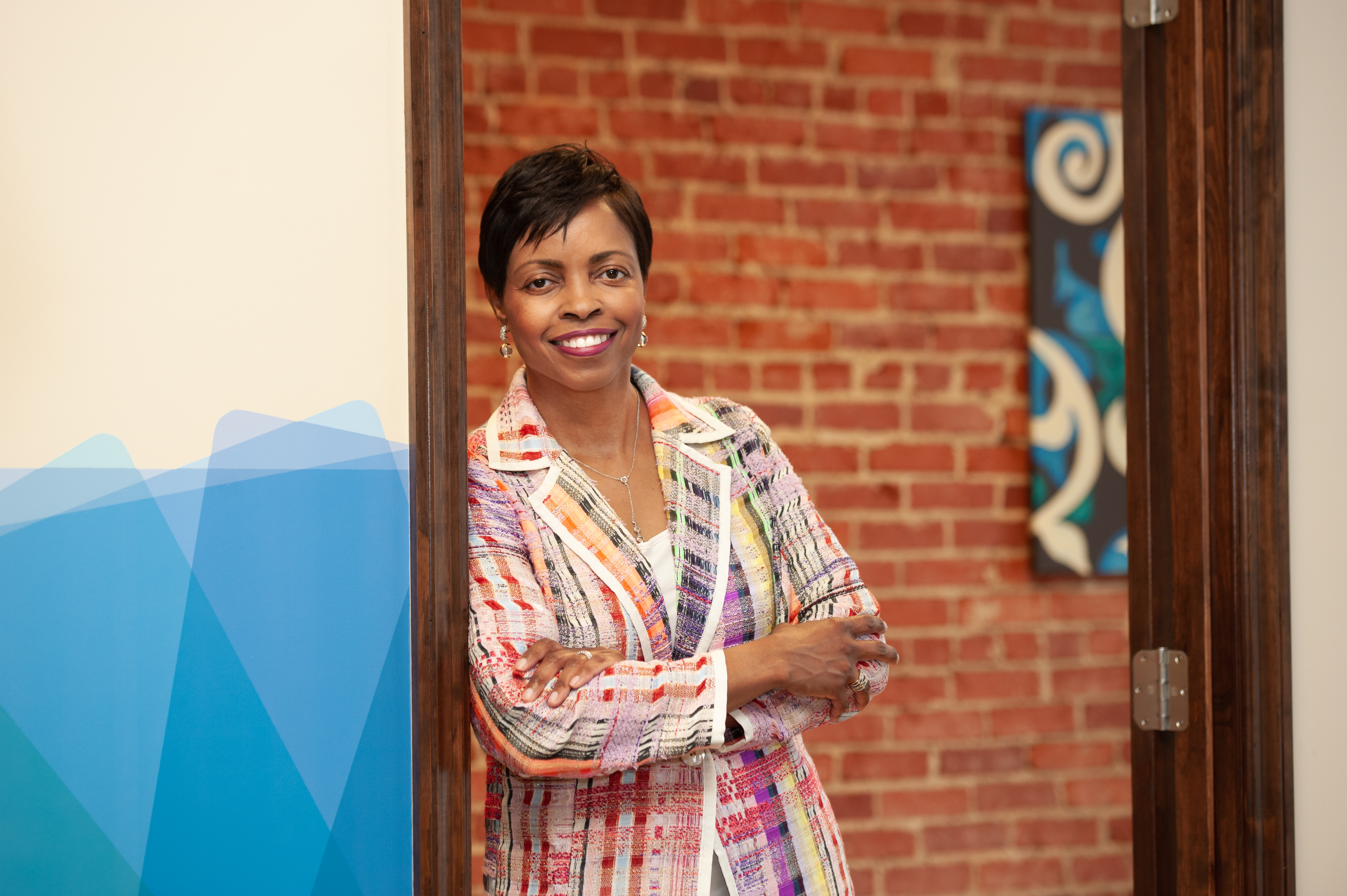After more than 20 years as a consultant focused on building corporate cultures and managing through change, Tangela Johnson is taking her own advice as she builds out the next chapter of her career. Her new book, "Relaxed Power: How to Live a Purposed (Not Perfect) Life," reflects her insights from decades advising corporate clients, as well as the lessons she learned in her earlier roles working in corporate settings, for a tech startup, and as a teacher.
"I have always been a strategic thinker and problem solver, and I've always been curious and passionate about what it takes to be our best selves, so I transitioned into developing leaders and transforming cultures," Johnson said. "I think the journey towards self-actualization for my own life along with my curiosity about what makes us all great led me to coaching."
This interview has been edited for length and clarity.
Q: Who is your book for?
I think I am talking to people who are interested in really living a very robust, purposed, meaningful life. You would think that's everybody, but I don't think so. It's for people who are seeking. Not everybody is seeking. That's what I've learned through coaching hundreds of people at this point - not everyone is seeking. Sometimes people experience trauma and different things that become a barrier. But I define it the same way I define success - as unleashing your potential, whatever your potential is connected to your purpose.
Q: What does success mean?
A: Well, there's the Americanized version of success, which doesn't necessarily speak to or for the rest of the world. I'm fine with that, but for me success is peace and mastery - it's being comfortable in your own skin, with who you are, and being at peace and living that out. What should you spend your energy doing on this Earth?
Q: Who are your clients?
A: The work I do is focused on leadership development and culture transformation, so the leaders I work with, the people who decide to pay me, are people who want to drive their vision and their mission of their organization they're leading. Culture change is very difficult. It takes at least 5 years, and there's a process. It's dirty work, it's hard work, it's painful work, and it requires a high level of commitment. Most of the clients I work with in that space are courageous leaders - they're trying to take an organization to the next highest place, and not everybody wants to take that journey.
Q: You recently went through a kind of retreat and reset to get focused for your own next phase.
A: Even though I've written the book, all of that, I still go through the same process. Where am I right now? I'm 52, and the 50s are really a time of enlightenment. I am personally making a shift in how I think about myself and what my next season looks like. Your 50s are your most productive time. You should be smarter than you've ever been. I've got to figure out how to scale those smarts, so that is what I'm working on, which means becoming more knowledgeable about social media and marketing myself, getting more comfortable with technology. I'm on Zoom calls constantly - I have three more today. I knew I was going to challenge myself to learn something new this year, but who knew we'd all have this level of learning? So the 50s are about empowerment and enlightenment, and I'm 2 years in and moving towards clarity about what this decade will look like for me.
Q: With the book complete, what's next?
I'm working on a master class around the book. I don't know what it's going to look like, but my premise in life is we are one piece of wisdom away from being our best selves. What is it that you don't know about you that keeps you from being your best? That's what the master class will be about. As part of that, I am developing questions you should be asking yourself at different seasons. These are questions that I've asked people over the years. They're not rocket science, but I know I've asked the right questions when people look at me and say, huh, I have to think about that.
Tangela Johnson
* Role: Founder and president of North Georgia Corporate Consulting* Career: Johnson began her career in the insurance industry, transitioned to leading sales for a tech startup, and then moved into teaching business writing at Dalton State and consulting for corporate clients* Education: Bachelor’s degree in broadcast journalism from the University of Georgia; master’s in writing from the University of Tennessee at Chattanooga* Community: Co-Chair of Chattanooga Women’s Leadership Institute, and will be Board Chair in 2021. Serves on the board of Siskin Hospital for Physical Rehabilitation.* Personal: Married with an 18-year-old daughter
Q: Your first career direction was journalism?
A: Yes, journalism and communication. Communication is the foundation of trust, and I don't know that people realize that. You have to be able to communicate to have and build trust and be seen. You have to be present and you have to actively listen, and you also have to fundamentally believe that the person in front of you is valuable enough for you to take the time to actually hear them. You have to believe it, and they have to believe it.
Q: How long have you been working on your book?
A: Since I was 17. When I was 17, I saw a writing contest in Ebony magazine. There was a monetary prize and I wrote a short story and submitted it. I won third place, $1,000. It was a science fiction piece because I loved Star Trek, I still do, I've seen every episode of the original God only knows how many times. And I always had wonderful English teachers in high school. Mr. Wright would make us recite every single day, Shakespeare, Beowulf, you stood up and recited poetry, excerpts from plays. He was phenomenal. He and Dr. Hudson, they were African American teachers, those two were just very instrumental. I lived in Manchester, Georgia, a very small town that had one high school, one elementary school, one middle school. My senior year, we had a lot of racial disharmony, and I said I wanted to do an independent study on racism. Dr. Hudson allowed me to do that in her class. That year, I read books on race, "Uncle Tom's Cabin," "Gone With the Wind," and I had to write an essay after every book. So I always knew I wanted to write a book, but I didn't know what it would be about. I have my master's in English and writing just because I wanted to become a better writer. I taught writing at Dalton State, which is where I actually became a better writer, but I just didn't have a topic.
Q: How did you finally land on this one?
A: It came through my work, my clients. Corporations, companies are made of people, and a lot of the time when I'm coaching leaders, I would notice patterns in people, people unhappy, people not effective in their roles, and I'm trying to get to the root cause. I'm a root cause girl. I love journalism - I'm always looking for the truth and the why. I ask questions, I started to see these patterns with people, and with myself. I love primary research - I order one or two books a week, I'm a smart woman, sometimes you've just got to call it - but you have to know how you're smart. I synthesize information. I hate it when people tell me how to think; I'm always looking for objective information. Your questions are super important, so I developed 17 or 18 questions and have talked to probably 20 executives from all over the country. I take pieces of information from all these places and then I can eventually come to the conclusion and have wisdom about whatever it is. I'm always suspicious of people who say they know the answers.
Q: You've mentioned seeing patterns in people and organizations. What's an example of that?
A: It takes about 5 years to gain mastery around anything. If you're changing a culture and you're a new leader, you think you'll go in the first few months and you'll click your heels and it will happen for you. Probably not. The first 2 years will be spent working extremely hard, trying to figure out what in the world is going on. In the third year, you'll have clarity, and then you can cast that vision. Then the next 2 years, working really hard, you will get to mastery in that fifth year. I've seen it in personal lives and in careers, and in my own life. In year 7, it's time for something different. You've gained mastery and it's time for you take on a new challenge so you can grow - if you want to. You don't have to. If you don't want to grow, you will probably not be happy, but you can decide not to. But I think the universe demands of all of us that we be our best self. My book is really about that process. If you can recognize what's going on at different times in your life, you will still be scared but you will say, 'I've been here before, I'm going to push through this thing.'
Q: What do leaders need to know to navigate this challenging time?
A: I got calls from so many people after George Floyd's death. All of them were white, 80% were men, most of them were clients, we had some deep conversations. It has led me to give leaders space to have a productive conversation to figure out what to do about it from a leadership standpoint. Leaders have to look in the mirror and say, 'What do I really think, what am I really going to do about it?' I ask them, 'What will it take for you to be an effective leader in this particular moment in time?'
Q: Your work seems focused on asking hard questions.
A: It is. My dad asked me questions my entire life. He never gave me answers; he gave me questions.

